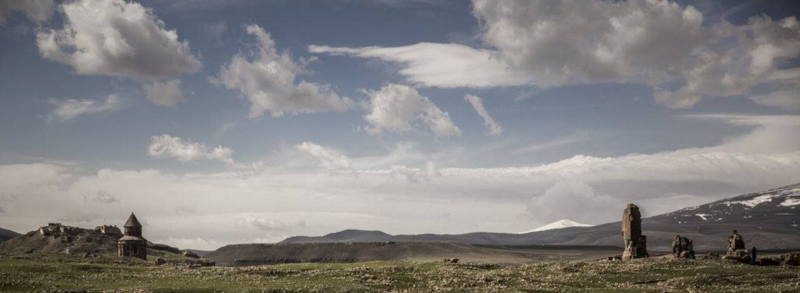Una novela histórico-ficcional no implica nada bueno ni nada malo. Es una novela, podrá sumar o restar dependiendo de la calidad autoral y actoral de sus creadores e intérpretes.
Por otro lado, bien sabido es que la política turca con respecto al genocidio armenio esde negación sistemática con artilugios que van desde manipulaciones históricas hasta prohibiciones legales. En ese amplio abanico, las acciones tendientes a mostrar la grandeza y fama de la cultura turca no han quedado fuera. Es sabido que la producción y difusión material de ciertos relatos implica el acallar otros.
Publicitar y lanzar la serie titulada El Sultán el mismo día en que se conmemora el aniversario número 102 del Genocidio Armenio es, como mínimo, un acto de ignorancia y mal gusto y, sin duda, un acto indolente de negacionismo. Lo que resulta controversial (y dañino) es el día elegido por TELEFE para el lanzamiento de la novela mencionada. No se trata de qué se muestra; sino del cuándo. El 24 de abril debemos reclamar por Verdad y Justicia. Esa Verdad y Justicia que nuestro país nos dio a través de la Ley 26.199 (Congreso de la Nación, 2007), a través de declaraciones presidenciales (Raúl Alfonsín, 1987 y Néstor Kirchner, 2007) y en la inédita resolución judicial por el Derecho a la Verdad que declaró el estado turco cometió Genocidio contra el pueblo armenio (Juzgado Federal Nº 5, 2011).
El Sultán de la novela es Süleyman (1494 – 1566) el gran hacedor, junto a su padre, del Imperio Otomano. Süleyman nació en la ciudad de Trebizonda. Este puerto turco fue testigo del asesinato de más de 10.000 armenios y armenias que allí vivían. Este puerto vio pasar a miles de armenios que eran “deportados” para ser enviados al mar donde morían ahogados. El Sultán es un claro ejemplo de las nuevas formas sutiles de negación a través del borramiento de procesos históricos traumáticos e irresueltos.
Tristemente, nos estamos acostumbrando a las formas sutiles de negación. La diferencia está entre saber y no saber. Hoy somos muchos los que sabemos y al saber no podemos permanecer pasivos. No podemos negar al 1.500.000; tampoco a los 30.000.
Memoria, Verdad y Justicia
Dr. Alexis Papazian Programa de Investigación y Estudios Académicos (FLH)
The Sultan Between Soap Opera Fiction & Denialist Politics
A historical-fiction soap opera does not implicate anything good nor anything bad. That it is a soap opera, could add or subtract depending on the quality of the author and the actors, of the creators and the interpreters.
On the other side, it is well known that Turkish politics, with respect to the Armenian Genocide, is of systematic denial with devices that ranges from historic manipulations to legal prohibitions. In that wide range, actions tending to show the greatness and fame of the Turkish culture are not left out. It is known that the material production and diffusion of certain accounts implicate the silence of others.
To publish and launch a series titled The Sultan the same day that commemorates the 102nd anniversary of the Armenian Genocide, at minimum, is an act of ignorance and bad taste and, without a doubt, is an indolent act of denialism. What is controversial (and harmful) is the day chosen by TELEFE for the launch of the mentioned soap opera. It is not about the appearance; it is about when. The 24th of April, we should reclaim for Truth and Justice. That Truth and Justice that our country gave us through Law 26,199 (Congress of the Nation, 2007), through the presidential declarations (Raúl Alfonsín, 1987 y Néstor Kirchner, 2007) and the unedited judicial resolution for the Right to the Truth that declared the state of Turkey committed Genocide against the Armenian people (Federal Court No. 5, 2011).
The Sultan of the soap opera is Suleiman (1494-1566) the great maker, along with his father, of the Ottoman Empire. Suleiman was born in the city of Trebizond. This Turkish port was witness of the assassination of more than 10,000 Armenians that lived there. This port saw thousands of Armenians that were “deported” to be sent to the sea where they died of drowning. The Sultan is a clear example of the new, subtle forms of denial through the deletion of traumatic and unresolved historical processes.
Sadly, we are used to subtle forms of denial. The difference is between knowing and not knowing. Today there are many of us that know and to know we cannot remain passive. We cannot deny the 1,500,000; nor the 30,000.
Memory, Truth and Justice
Dr. Alexis Papazian. Program of Investigation and Academic Studies (LHF)







Dejá un comentario